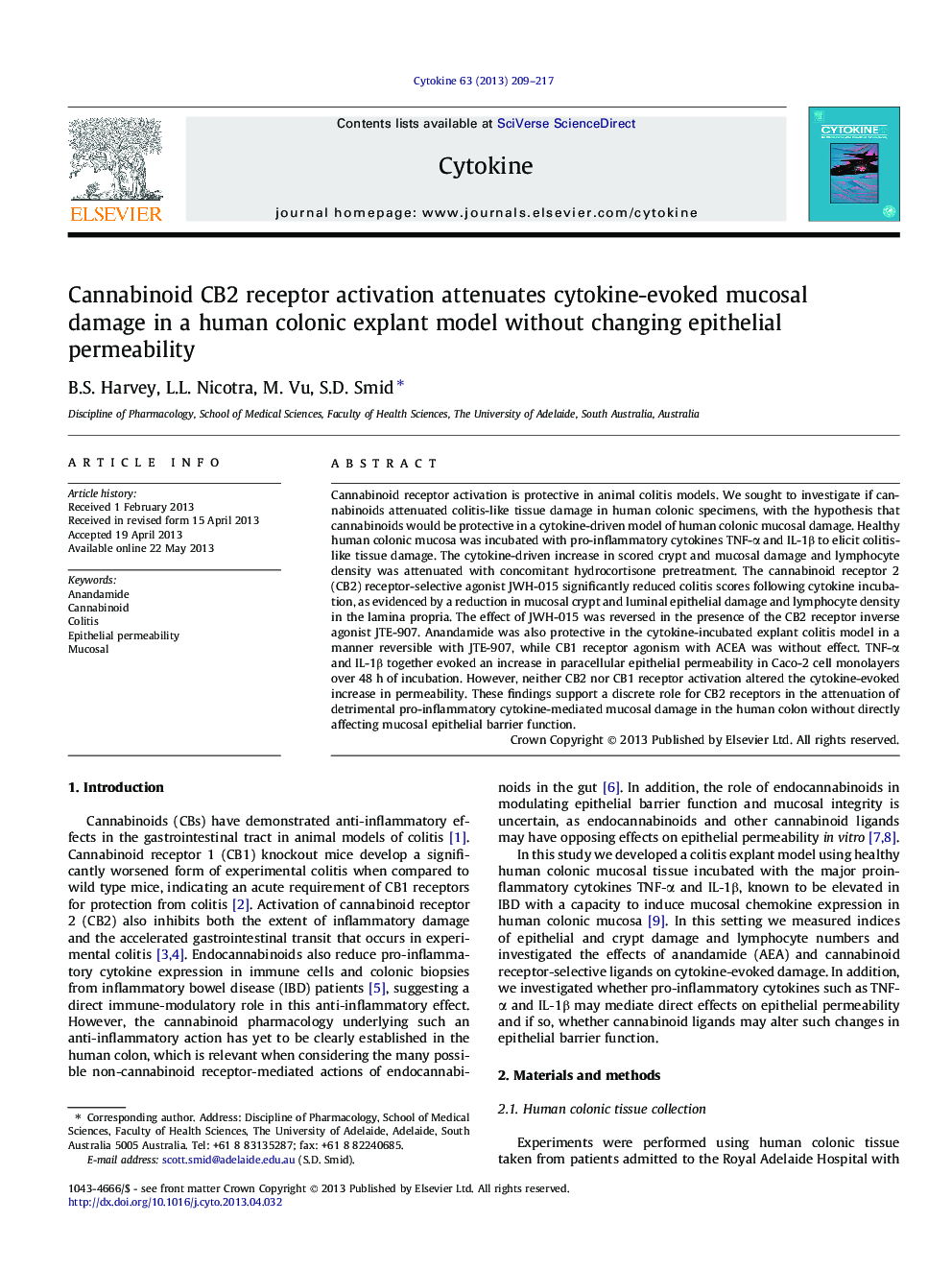| Article ID | Journal | Published Year | Pages | File Type |
|---|---|---|---|---|
| 5897860 | Cytokine | 2013 | 9 Pages |
â¢Cytokines evoke colitis-like mucosal damage in human colonic explant tissue.â¢Cytokine-mediated mucosal damage and lymphocyte infiltration is attenuated by anandamide and CB2 receptor-selective agonists.â¢Cytokines increase permeability in a colonic epithelial cell line.â¢Cannabinoid ligands do not alter increased epithelial permeability induced by cytokines.
Cannabinoid receptor activation is protective in animal colitis models. We sought to investigate if cannabinoids attenuated colitis-like tissue damage in human colonic specimens, with the hypothesis that cannabinoids would be protective in a cytokine-driven model of human colonic mucosal damage. Healthy human colonic mucosa was incubated with pro-inflammatory cytokines TNF-α and IL-1β to elicit colitis-like tissue damage. The cytokine-driven increase in scored crypt and mucosal damage and lymphocyte density was attenuated with concomitant hydrocortisone pretreatment. The cannabinoid receptor 2 (CB2) receptor-selective agonist JWH-015 significantly reduced colitis scores following cytokine incubation, as evidenced by a reduction in mucosal crypt and luminal epithelial damage and lymphocyte density in the lamina propria. The effect of JWH-015 was reversed in the presence of the CB2 receptor inverse agonist JTE-907. Anandamide was also protective in the cytokine-incubated explant colitis model in a manner reversible with JTE-907, while CB1 receptor agonism with ACEA was without effect. TNF-α and IL-1β together evoked an increase in paracellular epithelial permeability in Caco-2 cell monolayers over 48 h of incubation. However, neither CB2 nor CB1 receptor activation altered the cytokine-evoked increase in permeability. These findings support a discrete role for CB2 receptors in the attenuation of detrimental pro-inflammatory cytokine-mediated mucosal damage in the human colon without directly affecting mucosal epithelial barrier function.
